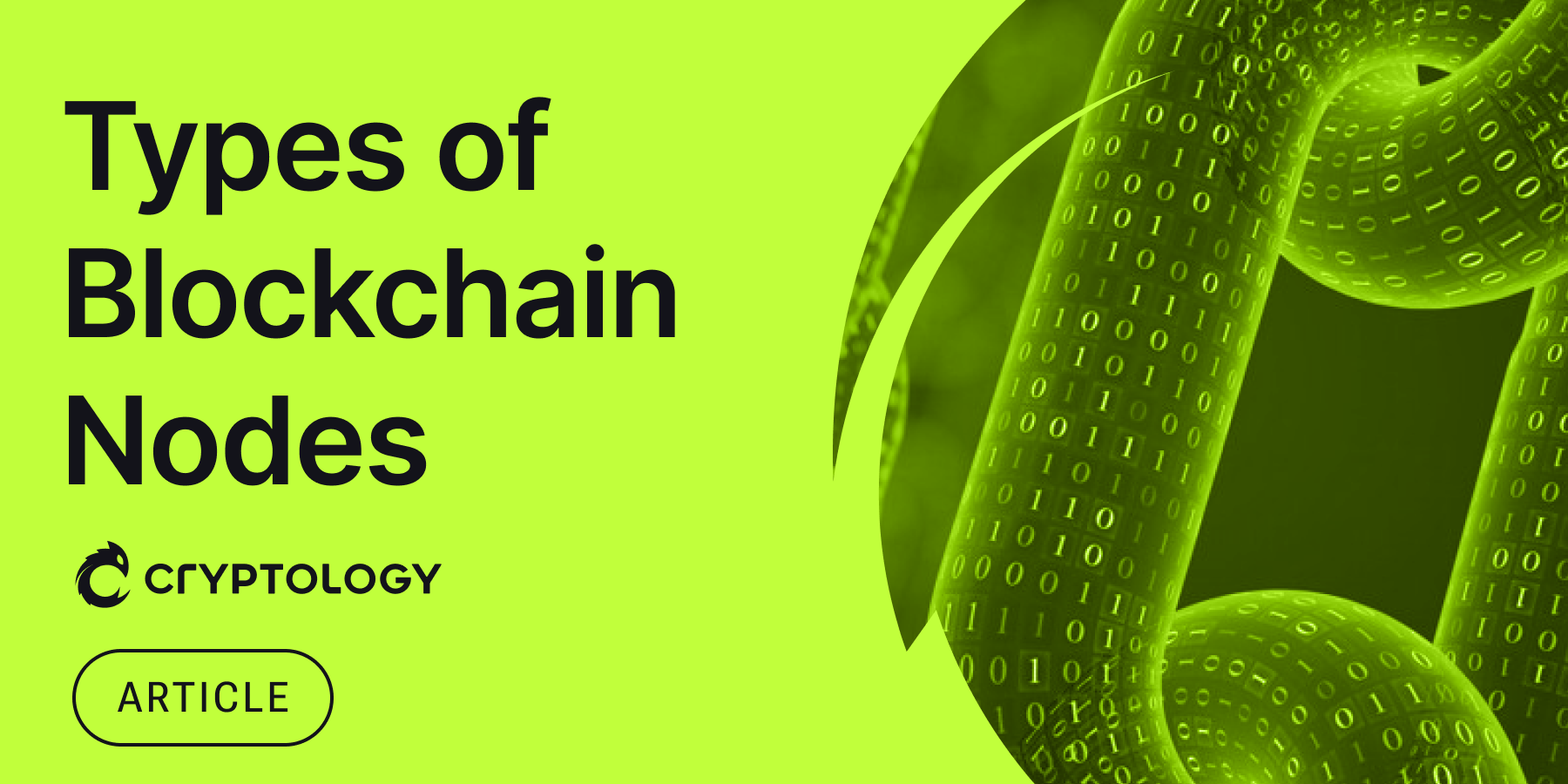
Table of content
What are Blockchain Nodes?
In blockchain technology, nodes serve as the network's backbone, facilitating transaction validation, block propagation, and consensus mechanisms. A node is any device connected to a blockchain network that participates in the validation and propagation of transactions.
Doing this allows the network, or distributed ledgers, to keep their security for user activity.
Types of Blockchain Nodes
There are different types of blockchain nodes for different use cases. Here are some of the most prominent types:
Full Nodes
Full nodes, also known as validating nodes, maintain a complete copy of the blockchain ledger. These nodes independently validate and verify each transaction making a network decentralized.
Lightweight Nodes
Referred to as SPV (Simplified Payment Verification) nodes, they don’t store the entire blockchain ledger. They only download and verify block headers, relying on full nodes to provide transaction information when necessary.
Mining Nodes
Mining nodes, commonly associated with Proof of Work (PoW) blockchains. They’re responsible for adding new blocks to the blockchain through mining. Miners utilize specialized hardware and computational power to solve complex mathematical puzzles, validate transactions, and secure the network.
Masternodes
Masternodes are specialized nodes that perform additional functions beyond transaction validation and block propagation. These nodes typically operate in networks utilizing Proof of Stake (PoS) or delegated Proof of Stake(DPoS) consensus mechanisms.
Archive Nodes
Archive nodes maintain a comprehensive record of all historical blockchain data, including past transactions, smart contracts, and network states. These nodes are crucial for blockchain researchers, developers, and auditors requiring access to complete historical data for analysis and auditing purposes.
Routing Nodes
Routing nodes, also known as routing or relay nodes, serve as intermediaries that facilitate the routing of transactions and information across the blockchain network. These nodes play a crucial role in ensuring efficient data creation between different nodes within the network.
Witness Nodes
Witness nodes, primarily associated with blockchain networks implementing segregated witness (SegWit) technology, validate the signature data of transactions separately from the transaction data itself. By segregating witness data, witness nodes enable increased transaction throughput and scalability while maintaining the security and integrity of the blockchain.
Oracle Nodes
Oracle nodes bridge blockchain networks and external data sources, providing reliable and tamper-proof data feeds to smart contracts and decentralized applications (dApps). These nodes enable blockchain networks to interact with real-world events and data, such as market prices, weather conditions, or sports outcomes.
Nodes are an important aspect of the blockchain and crypto experience.
They are able to bridge the gap between off-chain concepts and ones that exist on-chain, scale blockchains and their functionality and overall create a more sustainable ecosystem for developers and investors.
If you have enjoyed this article be sure to check out the Cryptology Academy today!




.svg)
.svg)
.svg)
.svg)
.svg)
.svg)
.svg)